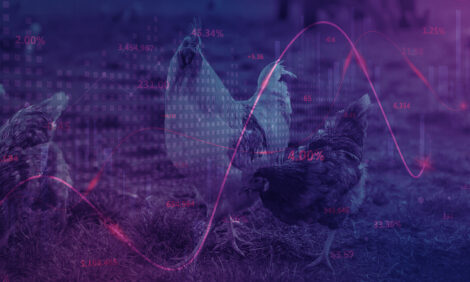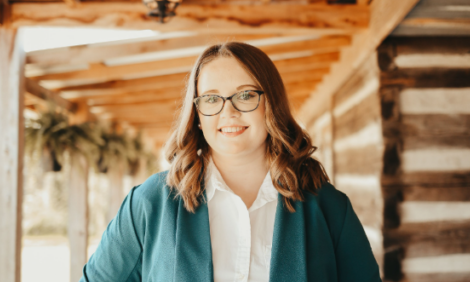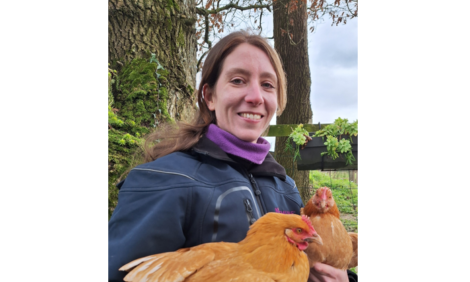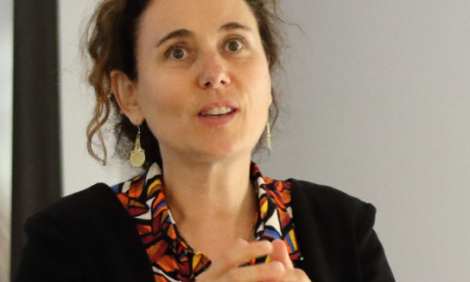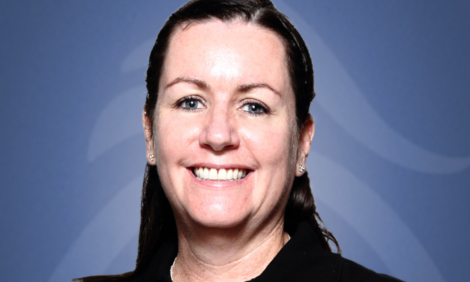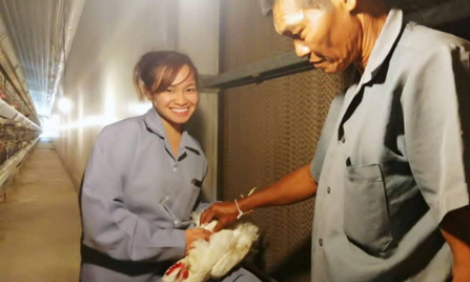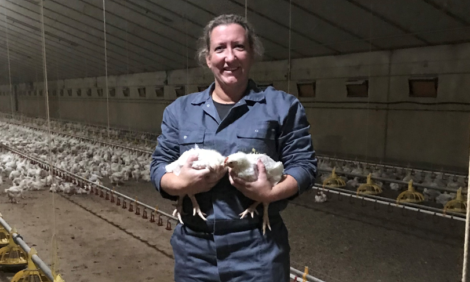



Women in Poultry: Alba Pfaff
Learn more about Alba Pfaff, Vaccination Services Manager at Ceva Sante AnimaleDescribe a typical day in your current role?
As the Vaccination Services Manager for the North, I oversee a vast geographical area that includes the Midwestern and Northeastern states of the U.S. as well as all of Canada. My daily responsibilities involve ensuring the smooth operation of our vaccination services. Our region boasts three distribution facilities: one in Maryland, one in Iowa, and one in Ontario. My team is tasked with visiting customers, providing specialized expertise, performing quality evaluations using our unique C.H.I.C.K App, servicing hatchery equipment, and managing customer expectations. Our ultimate goal is to ensure that 100% of the chicks are well vaccinated.
What’s unique about your role?
The sheer size of our region is truly unique. We serve 70 customers spanning from Delaware to California and Québec to British Columbia. Another distinctive aspect of our work is that we go beyond training just hatchery personnel; we also evaluate the vaccination of 3 billion chickens and poults annually in the North Area.
What are the main challenges that you face in your role?
Our goal is to ensure our customers have healthy, happy chickens, which means timely delivery of our products is crucial. Achieving this requires extensive collaboration with our supply chain department. Coordinating customer visits and vaccine deliveries across such a vast area demands significant planning and organization.
What does the future of poultry health look like in terms of preventing and treating disease?
There are many innovative vaccines on the market today, effectively controlling long-circulating viruses such as the Newcastle Disease Virus. I firmly believe in the philosophy that prevention is better than cure, especially since broilers, with their short lifespans, lack the luxury of time to recover from illnesses. However, new viruses like Avian Metapneumovirus and highly pathogenic avian influenza (HPAI) are causing significant disruption in the industry. Fortunately, numerous scientists are diligently working behind the scenes to develop solutions to curb their spread. Overall, the industry is making great strides, with research scientists, animal health companies, hatcheries, and farmers all working in unison to fast-track effective solutions.
Are there individuals or organizations in poultry who you’ve found particularly inspirational?
Yes, there are a few key influences in my career. One of my mentors is Christo Visagie, our Ceva EMEA Vaccination Manager. His extensive knowledge in poultry practices has been invaluable, especially since my background was initially in ostriches, which differs significantly from chickens and turkeys. His calm demeanor and honest leadership style have been incredibly inspirational to me.
Additionally, at Ceva, I've had the privilege of working with an all-female technical team at our corporate office. Drs. Paola Cruz Dousdebes, Miren Arbe, Clarisse Godefroy and Elia Perez have played a crucial role in shaping me into the leader and specialist I am today. Their expertise and support have been instrumental in my development.
I'm also a member of WILMAH (Women in Leadership & Management in Animal Health), an organization dedicated to empowering female leaders in the animal health industry. They not only focus on animal health but also provide a platform for like-minded women to support each other and collaborate towards success. I find their commitment and sense of community incredibly inspiring.
Have you encountered any challenges as a woman in your field? If yes, how have you overcome them?
Absolutely! Navigating a traditionally male-dominated industry isn't always easy for women, but I thrive on challenges and believe I chose this field for that very reason. I see myself as a strong individual, capable of holding my own at any table alongside male colleagues. To better understand the gender-specific challenges I face, I've sought to educate myself on their root causes. Taking the "Women in Leadership" course at Cornell University was instrumental in this process. It provided me with a deeper understanding of these issues and equipped me with strategies to overcome them. Recognizing the origins of these challenges and learning how to address them has been incredibly empowering. While I anticipate facing more obstacles as a woman in the poultry industry, I feel more prepared than ever to tackle them head-on.
What outstanding challenge facing the poultry industry would you most like to solve?
I would say HPAI. It is a disease that not only effect domestic poultry but also wild birds and lately other mammals and possibly humans in future. HPAI impacts the health of all birds and their welfare is severely compromised. It also has trade implications and threatens food security. Solving the issue of high pathogenic avian influenza is critical for safeguarding public health, ensuring economic stability, protecting animal welfare, preserving environmental quality, and enhancing global health security.
What’s the most exciting innovation that you see on the horizon for the poultry industry?
I would have to say data driven decision making. With all the new technologies on the market, a lot of automation in the industry, I am very excited to see hatcheries and farmers making decisions based on data. Continuous data collection and real-time monitoring enable hatchery managers to make informed decisions quickly, optimizing operations and improving outcomes. Centralized platforms that integrate data from various hatchery processes streamline management, improve traceability, and enhance overall productivity. Seeing customers implementing solutions based off data really excites me. By leveraging automation, smart technologies, and data analytics, modern hatcheries can produce higher quality chicks more reliably and sustainably.
What’s your next challenge?
I have recently entered this new role, having only moved here in January of 2024. I am currently settling into my new role after having worked globally managing the C.H.I.C.K. Program in 44 countries for the last 6 years. I am also still in graduate school pursuing my MSc at PennVet. For now, I am just happy to contribute to the health of poultry in North America and consider myself extremely fortunate to be at the forefront of the world’s largest poultry production. I believe my next challenge would occur organically when I least expect it!







